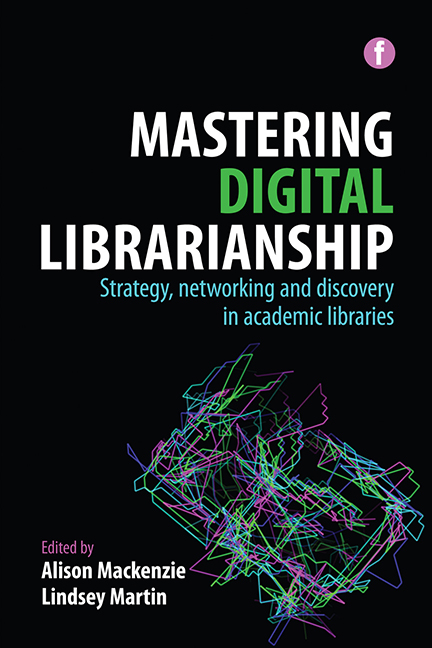4 - The impact of open and digital content on librarians’ roles in a learning and teaching context
Published online by Cambridge University Press: 13 September 2022
Summary
Introduction
This chapter focuses on the ways in which the open movement has impacted on librarians’ roles in a learning and teaching context, primarily from a UK higher education perspective. Librarians and libraries have been influenced by and have had an impact on the open movement for many years, beginning with the provision and management of digital content in general, to specific activities around repositories for digitized and borndigital content and research outputs.
The move towards Open Educational Resources (OER) has resulted in a significant volume of highquality open digital content, in addition to more general digital information and digitized resources, available free on the web. This presents two key opportunities for librarians involved in learning and teaching: first, to support and enable users to discover, reuse, manage, create and share learning and teaching resources in a global context; and second, as teachers and educators themselves, to participate in the OER movement by sharing their own teaching materials widely.
Background
OER are defined as ‘teaching, learning or research materials that are in the public domain or released with an intellectual property licence that allows for free use, adaptation and distribution’ (UNESCO, 2013). In summary, they can be large or small learning resources or tools, a whole course or a single file, with an open licence to be shared, edited, repurposed and reused by others. OER have become a global issue: UNESCO includes them as a priority under its ‘access to knowledge’ theme and maintains an OER community and toolkit. The recent European Commission document on education and skills identifies the potential of open learning and recommends that ‘Europe should exploit the potential of OER much more than is currently the case’ (European Commission, 2012, 9).
Some of the early examples of OER creation and sharing came from the USA. Firstly, MIT OpenCourseWare (OCW) was launched in 2002 and then formed the basis of the OCW Consortium, an international group of educational institutions creating and releasing open content using a shared model. In the UK, the Open University was one of the first universities to offer its resources free online in 2006, including tasters of its courses.
- Type
- Chapter
- Information
- Mastering Digital LibrarianshipStrategy, networking and discovery in academic libraries, pp. 65 - 82Publisher: FacetPrint publication year: 2014



